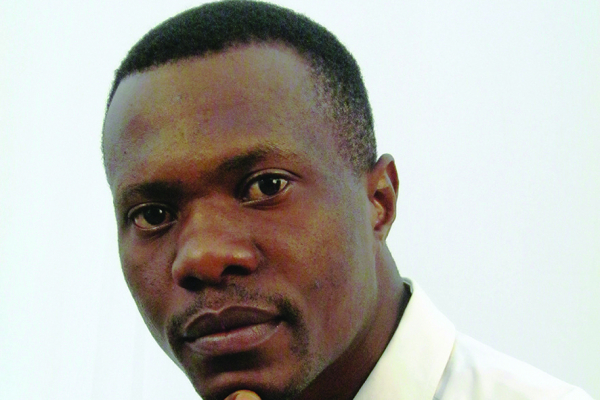
guest column Learnmore Zuze
IT is an inescapable fact that America, as the most influential State in the world, lays claim to the world’s most powerful military.
But military might is nothing compared to the repercussions that economic sanctions from the United States can bring about. There are two chief reasons why the
US can place countries under sanctions. Overwhelmingly, the US emphasises two criteria for which it may impose sanctions on a nation: Countries that sponsor terrorism and those that perpetrate human rights violations immediately fall under the radar of US-sanctioned countries. Any country caught in either of these two categories qualifies for sanctions from the US.
It is interesting to note that great footballing nations like Brazil and Argentina attract the world’s attention. Similarly, influential and wealthy States like the US itself and the UK catch global attention as well. Outstanding sports personalities like Usain Bolt and Cristiano Ronaldo draw the attention of nations. To add to these groups are repressive regimes. Oppressive countries also attract the world’s attention. The world knows about Usain Bolt’s athletic prowess on the track much as it knows about Adolph Hitler’s unmatched cruelty to Jews and the Germans. The fine difference between the two types of attention is that one is talked about affectionately, while the other is loathed. Fame can arise from the right things and the opposite is also true.
Across the world, some governments woo the world through admirable exploits. To the contrary, other States antagonise the world for their repression and violation of human rights. To such governments, there is a subsequent colossal price to be paid.
Every oppressive regime pays a hefty price. There is an evident link. Countries that rise to infamy through repression and human rights violations cannot prosper economically and most of the times, even the peace that should come with being in power cannot be fully enjoyed.
One can cite Burma, Cuba, North Korea and Syria as examples and there is a clear common factor; development is stalled and most despotic countries have to rely on an overdose of propaganda to justify their legitimacy and to gain acceptance among the family of nations.
- Chamisa under fire over US$120K donation
- Mavhunga puts DeMbare into Chibuku quarterfinals
- Pension funds bet on Cabora Bassa oilfields
- Councils defy govt fire tender directive
Keep Reading
It was Emiliano Zapata, a leading figure in the Mexican Revolution, who put the point across with chilling eloquence, and the truth of it we see everyday: “If there is no justice for the people, let there be no peace for the government.” Throughout all history, the world has never been in short supply of repressive systems. The world has failed to rid itself of despotic administrations. Intimidation, harassment and physical attacks on human rights defenders, trade union and civil society representatives and opposition politicians are some of the salient features of oppressive systems the world has seen over decades. Most of the times, such States purport to be democratic on paper, even professing adherence to constitutionalism. But that is as far as the constitutionalism goes. In reality, the supposed guaranteed freedoms do not exist at all.
There are, nonetheless, neo-autocratic States. These portray a façade of constitutionalism, which is hardly adhered to. Uganda, under long-serving ruler, Yoweri Museveni, is a case in point among African countries picked for nauseating authoritarianism.
Museveni’s tyrannical record is well-documented. Uganda is notorious for serious crackdowns on dissent, unlawful imprisonment of political opponents and draconian laws. It is ironic that in theory, Uganda is deemed a democratic republic. In essence, the Ugandan Constitution states that Uganda’s system of governance is based on a democratic parliamentary system, with universal suffrage for all citizens over 18 years of age.
Equality and freedom are all values provided for in the Ugandan Constitution. Even freedom of the media is guaranteed in Uganda, but in stark contrast, on September 26, 2017, the Uganda Commissions Commission (UCC) issued a directive banning live broadcasts which it viewed as inciting the public. The directive was issued the day after the arrest and detention of three journalists who had been covering a protest against the presidential age limit being raised. This is just about an eighth of the repression so rife in Uganda.
But just like Zapata observed, there is always trouble for systems that are repressive. Any mention of Uganda anywhere in the world immediately brings scorn and disdain. There is a price to pay for despotic rule. The United States has often called on the need for solid and observable democracy in Uganda.
The country itself is always in the throes of serious strife both within and outside its borders. The Ugandan government has vigorously enforced the ban on political activities and there are plenty times when opposition political gatherings were forcefully dispersed. As a result, Uganda is among some of the many countries largely recognised as undemocratic and whose style of governance is shunned by other countries.
Ultimately, it must be borne in mind that all totalitarian regimes whose rule is anchored on the gun and deny justice to their citizens, cannot themselves fully enjoy economic prosperity, communion with other countries and the peace so necessary for governance.











